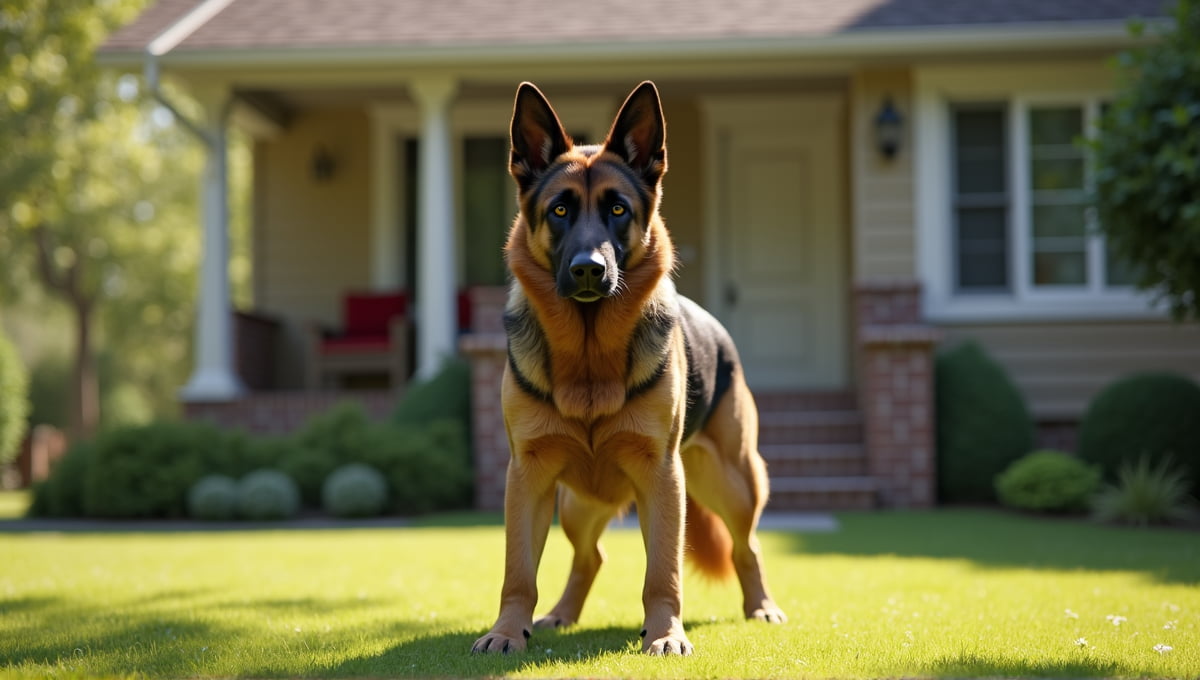I’ve worked with dogs of all breeds and backgrounds over the years. Purebred dogs can be excellent pets, but they’re not the best option for everyone. You should think about their predictable characteristics health problems and expenses. So is a purebred dog the best fit for your family? We’ll discuss breed traits common problems and what you can expect as a dog owner.
What Are Purebred Dogs?
Purebred dogs are dogs that have a documented pedigree, meaning their parents and their parents before them were all of the same breed. I’ve studied dog genetics for many years, and let me tell you, it’s some fascinating stuff. Purebreds have specific traits – both physical and behavioral – that are consistent within that breed. These traits are the result of many generations of selective breeding.
One of the primary defining factors of purebreds are breed standards. Breed standards are essentially a blueprint for each breed. It outlines the ideal physical traits, temperament, and even skills of the breed. Kennel clubs and registries maintain these standards and keep records of purebred dogs’ lineage.
Some of the major kennel clubs and registries include:
- American Kennel Club (AKC)
- United Kennel Club (UKC)
- The Kennel Club (UK)
- Fédération Cynologique Internationale (FCI)
Dog breeding itself has been around for a long time. In fact, humans have been selectively breeding dogs for thousands of years. Initially, it was for specific work, and later, breeding was more about the appearance of the dogs and the traits we wanted them to have as companions. Over time, this process is what has given us the wide array of purebred dogs we have today.
If you’re interested in the history of purebred dogs, you could say the concept of purebred dogs really took off in the 19th century when kennel clubs were established and breed standards were formalized. Since then, purebred dogs have only continued to grow in popularity among pet owners around the world.
Popular Purebred Dog Breeds

I’ve been a dog expert for years, and I’ve watched breed popularity trends come and go. These are currently the most popular kinds of dogs based on recent data:
- Labrador Retriever
- French Bulldog
- German Shepherd
- Golden Retriever
- Bulldog
- Poodle
- Beagle
- Rottweiler
- German Shorthaired Pointer
- Dachshund
Labradors are very friendly and outgoing dogs, so it’s no surprise to see them at the top of the list. They make excellent family pets. French bulldogs are the most adaptable smallest breed. They are great for city living. German Shepherds are arguably the most loyal and intelligent breed. You can currently find them in a variety of roles from being family pets to working dogs.
A breed’s popularity is often due to its size, temperament, and exercise requirements. Media exposure can also plays a major role. For example, remember when Chihuahuas were popular after they were featured in the taco commercials? Another reason a breed might become fashionable is because it’s often shown on TV. And, of course, celebrity ownership makes any breed more popular.
The most important consideration when choosing a breed is to think about your lifestyle. If you choose a breed simply because it’s a trending breed, you might end up with a dog breed that doesn’t fit your lifestyle at all. Each breed has different requirements and traits, so it’s essential to choose a breed that will thrive in your family and living situation.
Benefits of Owning a Purebred Dog
Purebred dogs provide a certain level of predictability that many owners like. When you select a purebred, you have a good idea of what to expect in terms of size, look, and demeanor. This is particularly useful if you have specific needs in mind for your dog.
I’ve seen many purebred dog owners select breeds with specific characteristics for a specific purpose. For example, if you need a herding dog, you can’t go wrong with a Border Collie. If you want a guard dog, a German Shepherd is a great choice.
Purebred dogs are often easier to train due to their breed’s inherent characteristics. For example, Poodles and Golden Retrievers are popular breeds because they are intelligent and eager to please, which makes training much easier and more enjoyable for both you and your dog.
Purebred dogs also have breed-specific events and shows you can participate in. These are great opportunities to socialize your dog and meet other enthusiasts. Many owners have also become good friends through these events.
There’s also a sense of satisfaction in preserving breed history and tradition. When you own a purebred, you’re part of a lineage of dogs that goes back generations. You’re also helping maintain the characteristics that make each breed unique. Many owners take a lot of pride in this responsibility.
Just keep in mind that each dog is an individual. While breed characteristics are generally consistent, there can still be slight variations in behavior and personality. At the end of the day, your purebred dog is still an individual just like you are!
Health Considerations for Purebred Dogs
Health is one of the most important considerations when discussing purebred dogs. Certain breeds are more prone to specific genetic health issues. Here are some examples:
- Hip dysplasia in large breeds, such as the German Shepherd and Labrador Retriever
- Brachycephalic syndrome in flat-faced breeds, such as the Bulldog and Pug
- Heart problems in the Cavalier King Charles Spaniel
- Eye problems in the Cocker Spaniel
- Skin allergies in the West Highland White Terrier
Genetic testing and health clearances are essential for purebred dogs. These tests can help identify potential health problems early. As a responsible owner, you should consult with your veterinarian to manage your dog’s health.
Each breed has its own set of health problems. For example, many Dachshunds suffer from back problems due to their long bodies. Dalmatians are prone to deafness. It’s important to research breed-specific health problems before selecting a purebred.
The question of comparing health problems in purebreds to mixed breeds is a tricky one. Some data suggests mixed breeds are less prone to health problems because of their diverse genetics. However, this isn’t always true. Mixed breeds are still at risk of inheriting health problems from both parent breeds.
The good news is responsible breeding can reduce the risk of health problems in purebreds. Ethical breeders prioritize their dogs’ health and well-being, testing for health problems and not breeding any dogs that suffer from genetic health problems. This results in healthier puppies with fewer genetic problems.
Cost Factors of Purebred Dogs

Purebred dogs are an investment. The initial purebred puppy cost varies significantly. It can be from a few hundred dollars to thousands of dollars. Some of the more rare or desirable breeds can cost even more.
There are several different reasons the prices of purebred dogs vary, including:
- The popularity of the breed
- The rarity of the breed
- The reputation of the breeder
- The pedigree and show quality
- The location
And remember, the cost of buying the dog isn’t the only expense. Purebred dogs have a lot of ongoing expenses. You need to budget for food, health care, grooming and various supplies. Some purebred dogs require more maintenance than others.
It isn’t always an apples-to-apples comparison to compare the costs of a purebred to a mixed breed. Mixed breed dogs often have a lower up-front cost, but they still have the same ongoing expenses. Both purebreds and mixed breeds have unpredictable health care expenses.
Purebred dogs may have higher health insurance premiums. This is because of breed specific health issues. Some insurance providers charge more if you have a breed more prone to certain health problems. It can be worth shopping around for pet insurance to find the best dog insurance fit for you and your purebred dog.
As someone who has worked in the pet industry for years, I always tell people to think about the long-term costs. Owning any dog is a financial commitment, and you want to make sure you’re prepared for the financial commitment of owning a dog.
Purebred Dog Breeding and Certification
Purebred dog breeding is a meticulous process. Breeders select parent dogs based on their health, temperament, and how closely they conform to the breed standard. It requires skill, patience, and dedication.
Documentation and pedigrees are important in purebred dog breeding. A dog’s pedigree is similar to a family tree and documents whether a dog is a purebred and can trace its lineage back several generations. This documentation is essential to maintain the purity of a specific breed.
Obtaining documentation through kennel club registration and certification is the only way to truly know that a dog is a purebred. Kennel clubs establish specific breeding regulations, maintain breed registries, and certify a dog as a purebred. However, it’s important to remember that just because a dog is registered doesn’t mean it’s high quality or healthy.
The ethical practices used in purebred dog breeding are some of the most important. A responsible breeder prioritizes the health and well-being of their dogs over profits. They health test their breeding dogs, conduct genetic testing, and carefully plan each breeding to ensure their puppies are healthy and well-socialized.
Breeders are regulated based on where they live, and many locations have laws for breeding dogs. These laws are in place to ensure that a breeding dog is healthy and thus produces healthy puppies. It’s up to you as the potential owner to ensure you’re buying from a good breeder who follows these laws and regulations.
Purebred Dogs vs. Mixed Breeds
Genetic diversity is one of the main distinctions between purebred and mixed breed dogs. Purebreds have a more narrow gene pool, which can make them more susceptible to particular health issues. Mixed breeds, on the other hand, tend to have a broader genetic diversity. As a result, mixed breeds may be less likely to experience inherited health problems.
Health and lifespan also vary between purebred and mixed breed dogs. Some data suggests that mixed breeds, on average, may live longer. However, this isn’t always the case. Many purebred dogs live long, healthy lives.
Temperament and behavior differences are present in both purebred and mixed breed dogs. Purebred dogs often have more predictable temperaments, as they’ve been selectively bred to express certain characteristics. Mixed breeds can have a wider variety of personality traits. However, always remember that any dog is an individual.
Adoption options for purebred and mixed breed dogs are also different. Mixed breed dogs are most commonly available in shelters or rescue organizations. Meanwhile, purebred dogs are typically acquired through breeders. However, nearly every breed has a rescue group specifically dedicated to that breed.
The better option between purebred and mixed breed dogs depends on the activity the dog will be performing. Purebreds may excel in particular activities, like herding, hunting, or service work. Mixed breeds are wonderful, generalist companions. Therefore, choose purebred or mixed breed based on your activity and breed characteristics.
Choosing the Right Purebred Dog

Selecting the best purebred dog for you is a major decision. Here are the most important things to consider when selecting a purebred dog:
- Size and space accommodations
- Energy level and activity demands
- Grooming requirements
- Temperament and ability to train
- Health issues
- Suitability with children or other animals
It’s a good idea to ensure the breed you choose aligns with your lifestyle. For example, an active family might be very happy with a breed known for being high energy, such as a Border Collie. By contrast, a more sedentary family might prefer a breed with lower energy, such as a Bulldog.
It’s vital you meet the dog before purchasing. This allows you to gauge the dog’s temperament and behavior. Additionally, you can evaluate the living conditions of the dog. I always advise meeting a dog before you commit to owning it.
When speaking with breeders or sellers, ask lots of questions. Ask about health clearances, how the dog has been socialized, and the dog’s parents. A good breeder will be more than happy to answer your questions, and he or she might even ask you questions to ensure the dog is going to a good home.
There are lots of resources you can use to research different breeds. You can browse kennel club websites, breed-specific organizations, and good books about caring for dogs. You can also ask veterinarians and skilled dog trainers for their opinion.
Keep in mind that selecting a dog is a long term decision. Therefore, take your time, do your research, and make an educated decision. Selecting the right purebred dog can make a fantastic addition to your family and provide enjoyment and companionship for many years.
To Sum It Up
Purebred dogs have special characteristics and a long lineage. You know their expected size, appearance, and abilities. However, inbreeding can lead to health problems. So, the breeder plays a large role in a purebred’s health. Mixed breeds tend to have a slightly longer lifespan and fewer genetic issues.
The decision ultimately comes down to your lifestyle, budget, and preferences. After all, all dogs deserve love and care, regardless of whether they’re purebred. I’ve seen both purebreds and mutts live happy, healthy lives. The most important thing is to find the right dog for you and your family.






